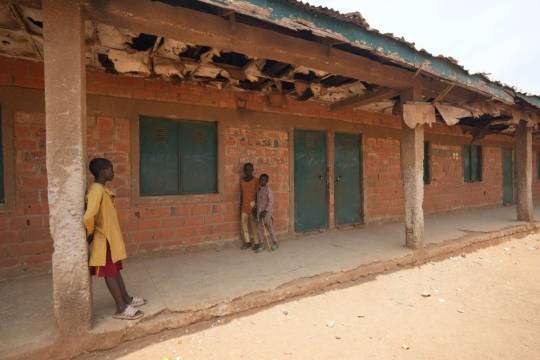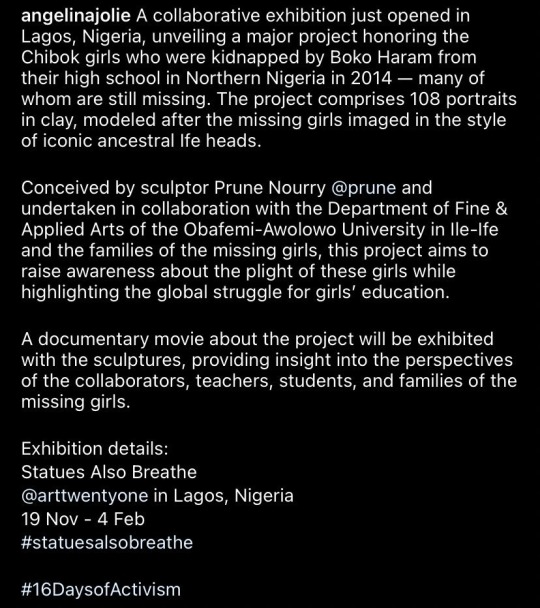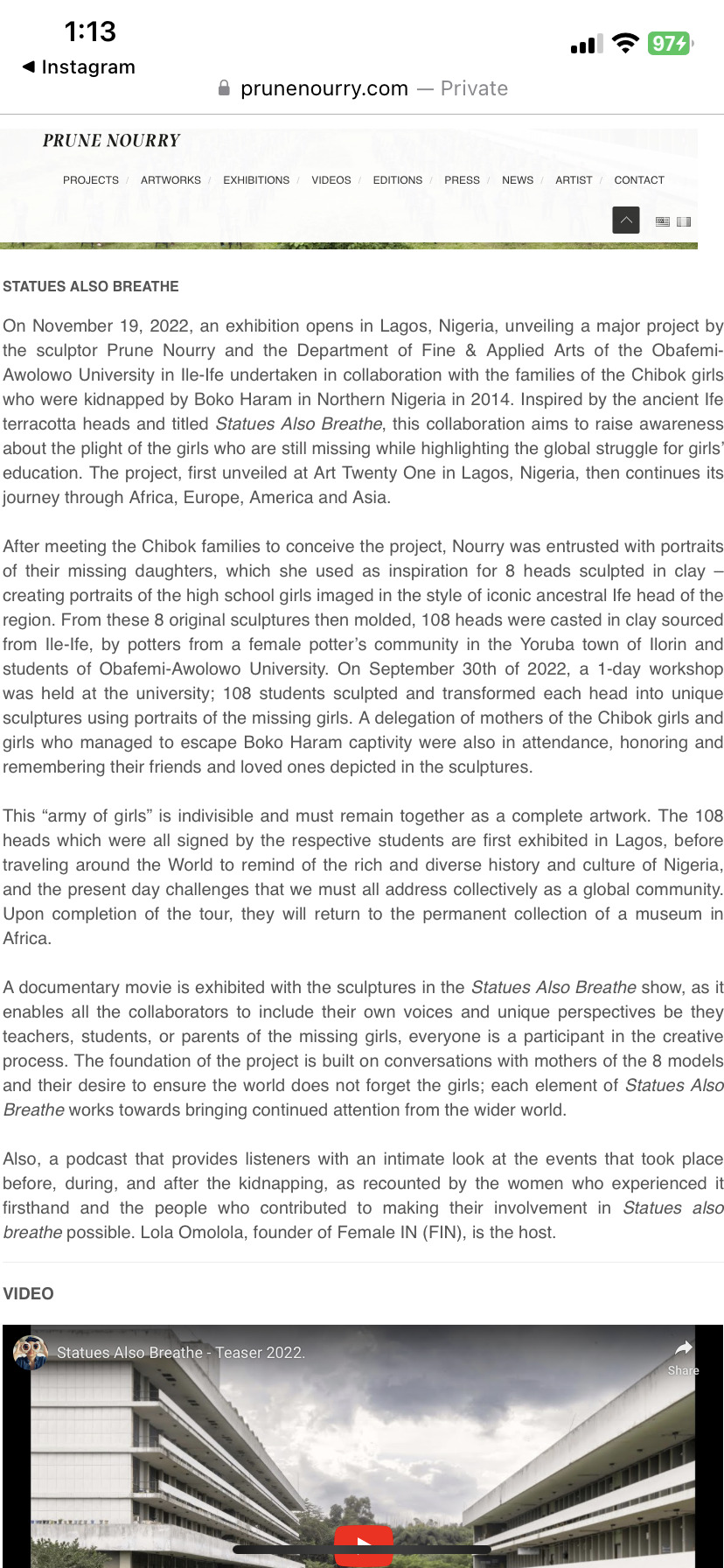#boko haram
Text

Source
177 notes
·
View notes
Text

This book is written in Latin by Adriani Rilandi In 1695 describing in great detail, what was then called Palestine. He visited the entire region, ~2,500 towns, and recorded a census.
Rilandi was a geographer, cartographer, traveler, philologist, he knew several European languages, Arabic, ancient Greek, Hebrew.
Here are the primary facts & conclusions:
* The country is mainly empty, sparsely populated, the main population is Jerusalem, Akko, Tsfat, Jaffa, Tveria and Gaza.
* Most of the population were Jews. That's right. Jews. Everyone else is Christians, aside from very very few Muslims, mostly Bedouins.
* The only exception is Nablus (now Shchem), where approximately 120 people from the Muslim family Natsha and approximately 70 "shomronims" (Samaritans).
* In Nazareth, the capital of Galilee, lived approximately 700 people - all Christians.
* In Jerusalem there were about 5,000 people, almost all Jews and a few Christians.
* In 1695, everyone knew that the origin of the country was Jewish.
* There is not a single settlement in Palestine that has Arabic roots in its name.
* Most settlements have Jewish originals, and in some cases Greek or Roman Latin.
* About 550 people lived in Gaza, half of them Jews and half Christians.
Jews were successful in agriculture, especially in vineyards, olives and wheat, Christians were largely engaged in trade and transportation.
The book completely refutes theories about "Palestinian traditions", "Palestinian people" and leaves almost no link between the land and the Arabs who even stole the land's Latin name (Palestine) and took it for themselves.
And now "Free Palestine" people, remind me, please, why are you trying to free Palestine from it's original indigenous people (Jews) and give it to colonizers and occupiers?
#Palestine#Palestinian#Hamas#israel#secular-jew#jewish#judaism#israeli#jerusalem#diaspora#secular jew#secularjew#islam#Isis#boko haram#al shabab#muslim brotherhood#Akko#galilee#Jaffa#Gaza#Israelis#judea#Samaria#JUDEAN's#adrinani rinaldi
54 notes
·
View notes
Text

"I can only assume the absence of mass outrage from Muslim countries over Boko Haram must be due to lack of coverage in cartoon form."
-- @GSpellchecker (Stephen Knight)
#Stephen Knight#Boko Haram#islam#islamic violence#islamic terrorism#religion#hypocrisy#blasphemy#religion is a mental illness
21 notes
·
View notes
Text

Various armed groups have kidnapped hundreds of people, including 287 schoolchildren, across northern Nigeria in a series of alarming attacks since late February. The kidnappings are the latest indication of Nigeria’s spiraling security crisis, as communities continue to face severe threats from Islamist insurgents like Boko Haram in the country’s northeast and other criminal groups in the northwest.
On February 29, suspected Boko Haram insurgents abducted over 200 internally displaced people, many of them children, in the Ngala Local Government Area of Borno State.
Then, on March 7, criminal gangs known as “bandits” kidnapped 287 students, including many girls, at the government secondary school in Kuriga town, in northwestern Kaduna State. Two days later, bandits broke into a boarding school in Gidan Bakuso village in Sokoto State and kidnapped 15 children as they slept.
The abductions have continued. Most recently, on March 18, over 87 people were reported to have been kidnapped in Kajuru community in Kaduna State. (Human Rights Watch)
11 notes
·
View notes
Text
Since at least 2013, the Nigerian military has conducted a secret, systematic and illegal abortion programme in the country’s northeast, ending at least 10,000 pregnancies among women and girls, a Reuters investigation has found. Many had been kidnapped and raped by Islamist militants. Resisters were beaten, held at gunpoint or drugged into compliance, witnesses say.
What the fuck
88 notes
·
View notes
Text
This is why I hate it when men complain about how it’s unfair that they can just be sent into war. Women in war zones face rape, forced marriage and seeing their children die so men don’t want to go to war then stop causing them.
Abducted and enslaved by Boko Haram. Coerced into an abortion by soldiers. Two children dead. The ordeal of Aisha shows how women's lives have become a battlefield in the 13-year war between Islamist insurgents and the Nigerian military.
By LIBBY GEORGE and PAUL CARSTEN
Filed Dec. 14, 2022, 11 a.m. GMT
AISHA vividly recalls her family’s last time together. It was a pleasant evening in the summer of 2014, in her Nigerian village near the Cameroon border. The rainy season had nourished her father’s grain, pushing the stalks knee-high. Her father, mother, two brothers and a younger sister were all at home.
The village had been repeatedly attacked over months by armed Islamist insurgents seeking to expand their territory, she told Reuters. Aisha’s father had ordered the sons not to leave their house, lest they be caught up in the violence. That evening, their mother stepped outside to cook.
Gunfire erupted about 5 p.m. and continued for hours, Aisha said. Amid the shooting, her mother collapsed, struck in the chest by a stray round. Aisha, then 18, and her 14-year-old sister made frantic efforts to bandage the wound, but their mother bled out and died.
“My mother’s death is the first thing that pains me,” said Aisha, now 26, weeping quietly. By her account, that night marked the end of a secure childhood in a loving family – and the beginning of a hellish ordeal at the hands of both the Islamist militants and the Nigerian military, who have been locked in a 13-year war over control of the country’s northeast.
That war is being carried out, in part, upon the bodies of women and children. Thousands of women and girls have been kidnapped and forced into sexual slavery by Boko Haram and its Islamic State offshoot. The Nigerian military has responded to insurgents’ brutality with brutal tactics of its own, as revealed in two recent Reuters investigations.
Citing witness accounts and documents, the news agency reported on Dec. 7 that the army has run a secret abortion programme in the northeast, ending the pregnancies of thousands of women and girls freed from insurgent captivity. On Dec. 12, again citing dozens of witnesses, Reuters reported the army has intentionally killed children in the war, under a presumption they were, or would become, terrorists.
Nigerian military leaders told Reuters the abortion programme did not exist and said children were never targeted for killing in the war. They said the Reuters reporting is part of a foreign effort to undermine the country’s fight against the insurgents.
Aisha’s ordeal encompasses some of the most extreme hardships the war has inflicted upon civilians: enslavement by Boko Haram, forced abortion by the military, the loss of one child in a military bombing and another, she suspects, to poisoning by soldiers. The war also took the life of a brother, in addition to her mother, and all but destroyed one of her arms, Aisha said.
Dozens of women in northeast Nigeria told Reuters of similarly wrenching experiences during the ongoing strife, which has claimed more than 300,000 lives, including those of civilians killed by violence, starvation and disease. Like Aisha, they said they chose no sides in the war but were targeted by both.
Reuters could not reach representatives of Boko Haram or its offshoot, Islamic State West Africa Province, for comment.
Major General Christopher Musa, who leads the Nigerian counterinsurgency forces, said Aisha’s story, as described to him by Reuters, could not have happened. “No,” he said, “not by us, not by Nigerian Army troops, who don't have any reason to do that.”
Aisha spoke to Reuters on condition that only her Muslim name be used, citing fear for her safety. Reuters is not naming her village, as well, to protect her identity. Her story was corroborated in part by her sister; a friend and fellow captive; one of her brothers; and a neighbour. Each said they witnessed some of the events or heard about them afterward from Aisha. These people spoke on condition they not be fully named.
Aisha related her experiences in interviews over the course of more than a year, often speaking in a numbed monotone, occasionally breaking down.
“I saw it, exactly, with my own eyes, and I heard,” she said. “That’s why I don’t have any hesitation to share with you my account.”
Aisha smiled as she recalled her younger days, when she would pound, roll and fry “kuli kuli,” a peanut treat she sold with her mother at the market near their farm. Her family was sustained both by her mother’s work and her father’s cultivation of maize, guinea corn and millet.
“They showed me the way to look after myself, to seek out knowledge, how to be in and to live in the world,” she said of her parents. “We had everything we needed, really.”
Unlike some fathers in the region, she said, hers had made a priority of securing an education for his girls, and he never beat them. In high school, Aisha had a boyfriend in a neighbouring village whom she hoped to marry. She said she dreamt of becoming a soldier, an accountant or even a doctor – a secure livelihood in the economically depressed region. She hoped one day to have children.
But after the 2014 attack, school was out of the question: She was trapped in Boko Haram’s then-spreading caliphate.
At first, she said, the insurgents didn’t show “any signs that they were going to kill people.”
But after the attack that killed her mother, they started to kill the adult men in the village, she said. One brother vanished; she heard later that he died. Another brother fled elsewhere in Nigeria and survived. A third brother had already sought safety in Cameroon before their mother was killed.
RELATED CONTENT
U.S. State Department 'deeply troubled' by report on Nigerian army killing children
U.N. secretary-general calls on Nigeria to investigate report of forced abortions
Hungry and malnourished, northeast Nigeria endures humanitarian crisis
Aisha and her younger sister stayed with their father, who told them not to leave. At first, Boko Haram did not disturb villagers in their homes.
But by October 2014, the militants were enforcing extreme sharia law in her village, Aisha said. The fighters interrogated a well-known local midwife and herbalist, whom they accused of witchcraft. The insurgents took the woman, in her 50s, to the village square and, in front of as many people as they could gather, beheaded her with an axe. Aisha said she can’t forget the woman’s head and body dangling as blood spurted from her. She began to feel terrified.
Her father, who was in his 70s, fell ill, she said, and he died by the end of the year. Now the two young, unmarried sisters were living alone. Boko Haram men often came looking for them, knocking on their door and forcing them to hide.
For months, Aisha and her sister survived on the beans, maize and guinea corn that their father had stored. Then the food began to run out, and Aisha decided they should make a run for it.
Plotting her escape
They left their house in the middle of the day in search of any town nearby that was not controlled by insurgents. They hadn’t gone far when they ran into Islamist fighters.
The men forced Aisha and her sister into different open-bedded trucks, each filled with other women, she said. When the sisters were separated, “we both cried and pleaded to God,” she said, weeping.
The trucks arrived nearly a week later in Sambisa Forest, a massive woodland near the Cameroon border that served as a Boko Haram stronghold. Then her captors lined Aisha up alongside other women for militants to select as wives. One man, named Musa, pointed at Aisha.
“Suddenly you have a husband, you’ve become husband and wife, by force, without ever having seen each other,” she said.
Compelled to live with Musa inside the forest encampment, she tried to resist his advances, but her new husband repeatedly beat and raped her, and he threatened to kill her, she said. When he went off to fight in the war, she said, “I would pray to God that he’d be killed.”
Almost immediately, she was pregnant and sick nearly every day. Yet when her son, Bana, arrived, she could not help but love the boy. She longed to escape the brutality, hunger and fear that marked virtually every day of her captivity. But she did not believe she could do so with Bana, as boys were particularly valued in the Boko Haram community. She said she also feared a boy associated with the insurgents would face stigma outside Islamist-held territory, where he would be seen as a potential enemy.
“I just prayed, constantly, looking for a way to get out, to leave Sambisa behind,” she said.
As soon as she stopped breastfeeding Bana, she was pregnant again – and asked God for a daughter. The arrival of Fatima, a happy and amenable baby girl, steeled her determination to escape.
“For Bana…I didn’t let myself have hope for him,” she said. But Fatima, she said, “was a gift from God. I thought, if God allows for it, that girl will go to school.”
In the end, the Nigerian military decided Bana’s fate. One morning about four years ago, when he was roughly 3, the military launched an airstrike on the camp. They blew up the hut where the boy slept. Aisha, who was nearby, ran to save him but was too late.
“He cried out once, then again, and then he died,” she said.
The explosion also hit Aisha, burning her severely and leaving one arm nearly useless, she said. She showed a reporter the arm, which she typically keeps hidden under her flowing hijab. She cannot use it, even to hold a drink.
Aisha took months to recover after the bombing attack. Lying in the insurgent camp’s infirmary, she plotted her escape, intent on saving Fatima from a future of hunger and rape under the militants. By then, she had been in captivity for more than three years.
In 2019, with 1-year-old Fatima tied to her back, Aisha slipped from the camp in the middle of the night along with six other women and two young children besides her daughter. They zig-zagged through the wilderness for four days, trying to avoid detection.
On the fifth day, they found a group of Nigerian soldiers, identifying them by their boots. At long last, she thought, she and her daughter were safe.
No traces of her
The troops took the women and children to a nearby encampment in the town of Madagali – a cluster of five army tents and a thatched hut, she said. There, they underwent interrogation and medical check-ups. The soldiers took samples of their blood and urine.
The following day, they told Aisha she had a vaginal infection. They injected two vials of medicine into her buttocks, without telling her what it was, and gave her an assortment of pills, she said. An hour later, she said, she was in wrenching pain and began bleeding heavily from her vagina.
Eventually, she said, she saw blood and a lump of what looked like flesh pass from her body. She had not known she was pregnant.
She realised she had been tricked into an abortion, but was too afraid to confront the soldiers. They told her later that they had done her a favour, she recalled, because a child of Boko Haram would be ostracised and a burden on her and her community.
Aisha had not wanted another child from a Boko Haram father, she said, but abortion was against her Islamic faith.
art 1. The Abortion Assault
Part 2. Smothered, Poisoned and Shot
Several days later, soldiers said Fatima needed medicine to keep her strong after being so long in the wilderness. They gave her and other children injections. Afterward, the mothers and children were piled into cars and returned to their villages.
After their arrival at the family’s former home, within hours of the injections, Fatima started acting strangely, Aisha said.
She would not breastfeed, her eyes became distant and glassy, and she developed a fever. A local pharmacist told her the child must have been bitten by a bug and gave her a syrup to lower her temperature.
Before dawn, Fatima went cold. She died in the same room where Aisha watched her mother bleed out years earlier. Aisha believes that the girl was poisoned by the soldiers.
Later in the morning, neighbours who heard Aisha’s sobs came to help her bury the tiny body in the local cemetery. One neighbour, Musa, confirmed Aisha’s account of that episode, saying he saw the girl before she died, and saw Aisha grieving afterward.
After Fatima’s burial, Aisha had no traces left of her daughter. Phones were forbidden for women in the militant camp, so she had no pictures or videos. They had escaped only with the clothes they were wearing.
Some joy, many sorrows
With Fatima gone, Aisha was alone. She made her way to a displaced persons camp in the city of Yola, a crowded and chaotic place populated with many other women as traumatised as she was. There was little food, and no money.
In the camp, Aisha found a new friend, Felerin, who held her as she cried over her losses. Felerin had suffered, too, telling Reuters she’d had a forced abortion and lost two young sons after soldiers injected them with poison at Giwa Barracks in Maiduguri. She confirmed to Reuters that Aisha had confided in her about her ordeal.
Weeks later, Aisha’s sister found her at the camp. She had escaped from another part of Sambisa Forest. The young women screamed with joy, drawing a crowd of curious spectators.
She was so emaciated, “I barely recognized her,” Aisha’s sister told Reuters. “I didn’t think it was her.”
The sister, who said she’d been a servant to the wife of a high-ranking Boko Haram leader during her captivity, had not seen Aisha since their arrival in Sambisa Forest. After they reunited, she said, Aisha shared the details of her life during their time apart – including her escape, the abortion and the suspected poisoning of Fatima.
REUTERS INVESTIGATES
More Reuters investigations and long-form narratives
Got a confidential news tip? Reuters Investigates offers several ways to securely contact our reporters
After leaving the camp, Aisha and her sister stayed for a short time with an aunt in the Nigerian capital, Abuja, but she treated them as a burden, saying they had “the attitudes” of Boko Haram, Aisha said. The sisters have since settled in their former village together at their old house.
Aisha says her sister is a comfort and a link to her tranquil early years. Her sister has a daughter, now 2, who entertains them both.
But with her damaged right arm, Aisha cannot pound and mix kuli kuli to sell. She and her sister now sell fried groundnuts on the side of the road, earning barely enough to live.
Aisha mostly keeps her story to herself, and has avoided most old friends. She fears being called a “Boko Haram bride,” a slur thrown at many of the women who escaped captivity.
Still, Aisha feels compelled to pray for forgiveness – for failing to save her two children, for the sinful abortion and for the anger that won’t leave her. Until September, she used to fast twice a week in supplication to God, but she became too weak to continue.
She does not know if her life will improve.
“Who can truly know, if not God?” she asked. “But we pray to see things change, for the world to become better again, like it was before.”
15 notes
·
View notes
Link
“In 2019, a colleague and I interviewed dozens of children in northeast Nigeria who had been detained in horrific conditions in a military prison for alleged association with the armed group Boko Haram. The children described beatings, overwhelming heat, frequent hunger, and being packed tightly in cells with hundreds of other detainees “like razorblades in a pack.” Most were never charged and held for months or years with no outside contact.
Since 2013, at least 4,000 children have been detained in Nigeria. Many were abducted against their will or apprehended when fleeing Boko Haram attacks. Some were only five years old.
Our report, published in late 2019, helped prompt the release of 333 children from prison, but authorities refused to allow the United Nations access to the prison or to enter an agreement to ensure children were not military detained and were provided immediate reintegration assistance.
Last week, the Nigerian government finally signed a “handover protocol” with the UN agreeing that children taken into military custody on suspicion of involvement with Boko Haram should be transferred within seven days to civilian authorities for reintegration. This is an important milestone that will help prevent the military detention of children and ensure they receive needed support...
Handover protocols are practical measures to ensure that instead of prison, children affected by conflict can be reintegrated into their communities. In Mali, for example, dozens of children have been transferred from military to civilian authorities for reintegration thanks to a handover protocol signed in 2013. Chad, Niger, and Burkina Faso have also signed protocols.
Children affected by conflict need rehabilitation and schooling, not prison. Nigeria’s new agreement should help children get the support they need.” -via Human Rights Watch, 10/3/22
#nigeria#human rights abuses#cw child abuse#children's rights#boko haram#child soldiers#good news#hope
18 notes
·
View notes
Text
Text.
#i'm probably not the person to be laughing at islamophobia considering I'm not muslim#and this is just online so there's enough distance to not be scary#but islamophobes don't care whether or not you are muslim in the first place#you kinda get used to being called a terrorist supporter and ISIS bride is the thing#and you start to find some of it really funny#like it's endlessly funny how Zionists keep seeing Hamas in their street‚ their cereal bowl and cat's litter box#and the Hamas=ISIS has always been amusing because IS hates Hamas#''do you condemn Ham—?'' ISIS: ''SO GLAD YOU ASKED FUCK THOSE GUYS—''#i was prepared for the natural evolution of Hamas=ISIS=Taliban#again hilarious to anyone who sees the Middle East as other than Terrorist Blob#ISIS and Taliban are currently too busy fighting each other like cats to bother anybody else#but yday a friend of mine got a message calling her a ''racist Hamas Boko Haram terrorist''#BOKO HARAM#how tf is BOKO HARAM going to#THAT'S ON THE OTHER SIDE OF AFRICA#I'm just. dyyiiinngg#💀💀💀#man I wish us non-Muslims could get the online Islamphobic bile. not only does it not hurt us it's also mostly hysterical#knee of huss
1 note
·
View note
Text
Sorry guys just need to vent. I'm a political science major and a conflict researcher. This week has been incredibly incredibly incredibly tough to continue with my research. I've seen all kinds of human brutality over the years but it still shocks me how evil can mankind be. After what happened in Texas, the situation worsening in Ukraine, Russia's power politics, and now with Nigeria and Boko Haram. I feel like all my soul has been ripped out and I struggle waking up every day just to read the same horrible horrible things in the news and continue with my research. It's been centuries and I tell you the pattern of political violence and radicalisation have been THE SAME and have been repeated over and over. People have never learned from their mistakes and my heart is breaking so much.
15 notes
·
View notes
Text
There's a long list genocidal situations ongoing throughout the world, so why are accusations leveled only against Israel on Holocaust Remembrance Day?
Assad's Syrian Army bombed a city full of civilians because they don't recognize the regime as legitimate but no condemnation came out of the UN.
Why isn't the UN condemning true genocides taking place, largely (but not exclusively) at the hands of jihadi armies?
The "Early Warning Project" identified 10 ongoing episodes of nonstate led mass killing as of the end of 2020. The affected countries, with the perpetrator group and date of onset in parentheses, are the following:
Afghanistan (Taliban, Haqqani network, and associated armed groups, 2001)
Central African Republic (various armed groups, including anti-Balaka, 2013)
Democratic Republic of the Congo (various militias in the northeast, 1998)
India (Maoist rebels, 2004)
Iraq (ISIS, Islamic State, 2003)
Nigeria (Boko Haram, 2010, Fulani Muslim Militias 2023, 2024)
Pakistan (Taliban Movement of Pakistan and associated militias, 2001)
Somalia (Al Shabaab and associated militias, 2007)
South Sudan (Machar supporters, SPLM in Opposition, Nuerthnic militias, and others, 2013)
Syria (Islamic State and associated militias, 2012)
Ref: Holocaust remembrance website
#secular-jew#israel#jewish#judaism#israeli#jerusalem#diaspora#secular jew#secularjew#islam#boko haram#Nigeria#Iraq#Isis#Hamas#Hamas is Isis#no ceasefire#llateaubstat#plateau state#south sudan#somalia#syria
64 notes
·
View notes
Text
Più si inviano armi all'Ucraina, più gli integralisti islamici compiono azioni militari in Africa.
5 notes
·
View notes
Text
Angelina Jolie is promoting an exhibit by Prune Nourry undertaken in collaboration with the families of the Chibok girls who were kidnapped by Boko Haram in Northern Nigeria in 2014.






4 notes
·
View notes
Text
EDITORIAL: 2023 polls: Issues before presidential candidates
EDITORIAL: 2023 polls: Issues before presidential candidates
The floodgates for 2023 general elections campaigns were opened last Wednesday, following the timeline of the Independent National Electoral Commission (INEC). The 18 registered political parties would jostle for legislative and governorship seats. The most coveted diadem is however the presidency of Nigeria. Arguably, the race for the top seat offers Nigerians the strongest options never seen…

View On WordPress
#All Progressives Congress#Boko Haram#H1#Independent National Electoral Commission#Islamic State’s West African Province#the presidency of Nigeria.#United Arab Emirates#United Nations Development Programme
3 notes
·
View notes
Text
BOKO HARAM, ISWAP TERRORISTS MOBILIZING FIGHTERS, HEAVY WEAPONS TO ATTACK BUHARI'S STATE, KATSINA; BANDITS PLANNING ATTACKS ON LAGOS, ABUJA, OTHERS – NIGERIAN SECURITY AGENCY - NSCDC
BOKO HARAM, ISWAP TERRORISTS MOBILIZING FIGHTERS, HEAVY WEAPONS TO ATTACK BUHARI’S STATE, KATSINA; BANDITS PLANNING ATTACKS ON LAGOS, ABUJA, OTHERS – NIGERIAN SECURITY AGENCY – NSCDC
The Nigeria Security and Civil Defence Corps (NSCDC) has stated that Boko Haram and Islamic State for West Africa Province (ISWAP) terrorists have mobilised to attack President Muhammadu Buhari’s home state, Katsina.
Another intelligence report revealed plans by two bandit groups to attack Lagos, Federal Capital Territory, Katsina, Zamfara, Kaduna, and Kogi.
The NSCDC said from the intelligence…

View On WordPress
2 notes
·
View notes
Text
20 NIÑAS DE CHIBOK DESAPARECIDAS TODAVIA SE ENCUENTRAN EN EL CAMPAMENTO DE BOKO HARAM EN SAMBISA
Mary y Hauwa, las 2 niñas rescatadas de GGSS Chibok en Borno en 2014, han revelado que más de 20 desaparecidas todavía están en el campamento de Gazuwa en el bosque de Sambisa
Estas niñas fueron abandonadas por el resto del mundo: El grupo mercenario Scorpion cuyo líder llamado Rubio intento sin éxito, durante todos estos años que el gobierno de Nigeria autorizara una operación para rescatarlas siempre ha sido bloqueado por el presidente de turno, a ninguno de los políticos de este país les ha interesado la liberación de estas niñas, de estas jóvenes.
#Sambisa#Boko Haram#Scorpion IDS#Wearenotacompany#Mercenarios#Rubio Mercenario Madrileño#OK! News Press#Nigeria#Camerun
2 notes
·
View notes
Text
Perseguição na Nigéria: cristã perde sua visão e seu pai em ataque terrorista
Confira a novidade em https://ntgospel.com/noticias/perseguicao-religiosa/perseguicao-na-nigeria-crista-perde-sua-visao-e-seu-pai-em-ataque-terrorista
Perseguição na Nigéria: cristã perde sua visão e seu pai em ataque terrorista

Suzanne, uma cristã residente na Nigéria, vivenciou uma tragédia de proporções inimagináveis quando o grupo terrorista Boko Haram atacou sua família. Durante o brutal ataque, ela perdeu a visão e seu pai foi brutalmente assassinado. No entanto, em meio à dor excruciante e à devastação incomensurável, Suzanne encontrou refúgio inabalável em sua fé em Jesus Cristo, testemunhando o poder transformador do amor e do perdão.
Em um relato comovente concedido ao Global Christian Relief, Suzanne descreveu os eventos horripilantes do dia do ataque. Enquanto cuidava de um campo ao lado de seu pai, os terroristas atacaram de forma abrupta. Seu pai foi morto a tiros, enquanto ela mesma foi baleada na cabeça e deixada para morrer.
Perdão aos Terroristas
Miraculosamente, Suzanne sobreviveu ao ataque. Apesar da dor física e emocional imensa, ela tomou uma decisão surpreendente e inspiradora: perdoar os terroristas responsáveis por sua tragédia. Guiada pelos ensinamentos de Jesus Cristo, Suzanne encontrou força inabalável em sua fé para superar o ódio e abraçar o amor.
“Porque Jesus Cristo me ensina isso”, ela declarou ao missionário do Global Christian Relief quando questionada sobre sua decisão de perdoar. “Jesus disse: ‘Quem morrer por mim, terá a vida eterna’. Este é o versículo que me fortalece e me guia.”
Testemunho de Fé
A história de Suzanne serve como um testemunho eloquente da fé inabalável em face da adversidade. Mesmo após sofrer uma perda incomensurável e experimentar uma dor excruciante, ela se recusou a ceder ao desespero ou à amargura. Em vez disso, ela encontrou consolo e força na Palavra de Deus e na mensagem de amor e perdão de Jesus Cristo.
Segundo o guiame, infelizmente, a história de Suzanne não é um caso isolado. Milhares de cristãos na Nigéria enfrentam perseguição e violência implacável devido a sua fé. O Boko Haram e outras organizações terroristas visam comunidades cristãs, causando morte, deslocamento e sofrimento inimagináveis.
#Ataque a cristãos#ataque terrorista#Boko Haram#Global Christian Relief#Perdão em Jesus#perseguição cristã na Nigéria#perseguição na Nigéria
0 notes